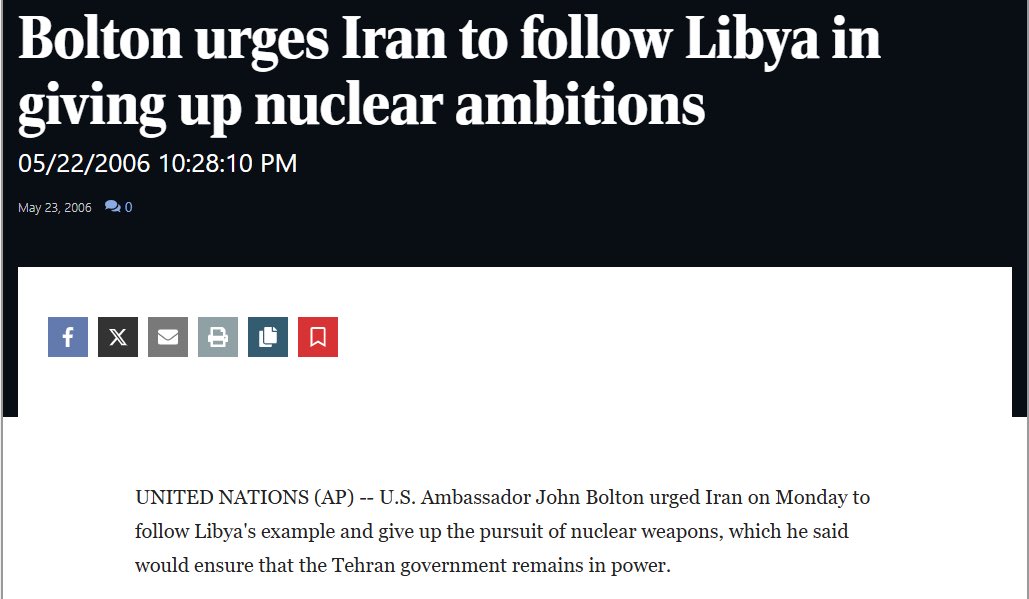Raisi took office as Iran's 8th president.
Marked by a reputation for repression, bereft of experience in governance, facing growing internal & external challenges, there will no honeymoon for the deep state's groomed choice.
Our new report explains 🧵:
crisisgroup.org/middle-east-no…
Marked by a reputation for repression, bereft of experience in governance, facing growing internal & external challenges, there will no honeymoon for the deep state's groomed choice.
Our new report explains 🧵:
crisisgroup.org/middle-east-no…
2| With Raisi's installation, hardliners control all IRI's elected & unelected institutions. His path was paved by an election that was unfree, unfair and - even by Iranian standards - uncompetitive.
How uncompetitive? If spoiled ballots were a candidate, they'd have come 2nd.
How uncompetitive? If spoiled ballots were a candidate, they'd have come 2nd.

3| Why was the system willing to sacrifice elections, which it claims as pillar of its popular legitimacy, for a non-race? Because it's wagered that closing ranks at time of uncertainty is a price worth paying - especially if it shores up 30% of Iranians backing conservatives. 

4| It's a massive gamble, and Raisi's to-do list is monumental: Jobs, inflation, COVID-19, water/electricity shortages, ongoing protests & labor strikes just some of the key challenges his admin faces. And even as the economy goes from red to black, it's badly in need of surgery. 

5| Glass-half full view is that Raisi & Co realize scale of the task, and that having all responsibility on their shoulders, hardliners are better placed to implement difficult choices.
Perhaps.
But even that is a notch up from the prospects over socio-political reform:
Perhaps.
But even that is a notch up from the prospects over socio-political reform:

6| System's default response to protests over econ/pol grievances is iron first; A sociologist said the system faces "silent tsunami" of resentment particularly acute in impoverished/underdeveloped border provinces.
Unaddressed, standoff b/w state & citizen looms.

Unaddressed, standoff b/w state & citizen looms.


7| When it comes to foreign policy, Raisi is untried & vague on actual policy. Iran's strategic decisions aren't set by the president, but tone and tactics of he and his team are key in how Iran is perceived by the world.
JCPOA's fate stands central to how this unfolds.
JCPOA's fate stands central to how this unfolds.
8| We trace talks that got underway in April, addressing 2+2 issues:
Core discussions on sanx/nukes for mutual compliance
Iran's ask for a guarantee US won't leave again
US wanting commitment for Iran to talk abt missiles/sunsets/regional
But since 20 June, all talks on hold.
Core discussions on sanx/nukes for mutual compliance
Iran's ask for a guarantee US won't leave again
US wanting commitment for Iran to talk abt missiles/sunsets/regional
But since 20 June, all talks on hold.
9| How Raisi/Tehran approach JCPOA talks now the key variable: They could return to Vienna, pick up where Round 6 left off and seal a deal - or move to a brinksmanship gambit on the notion that it'll yield bigger returns.
US/E3 saying: Think very, very carefully.


US/E3 saying: Think very, very carefully.



10| Clock will be running as Iran's nuclear breaches approach the point of no return: Advances too substantial for JCPOA to fix.
With September IAEA BoG meeting on the horizon, Tehran could end up facing a censure resolution - and perhaps referral to the UNSC if it dithers.
With September IAEA BoG meeting on the horizon, Tehran could end up facing a censure resolution - and perhaps referral to the UNSC if it dithers.

11| As we argue in the report, mutual return to full compliance with existing deal is still the best path forward. Divide b/w the two sides is real but still bridgeable and better than reverting to race of sanctions vs. centrifuges that is in neither's interest. Failing that...
12| An alternative would be to shift toward a JCPOA-minus deal capping escalation process: Iran freezing key breaches of its nuclear obligations in return for partial sanctions relief. This is a way station toward a JCPOA+ or a more-for-more deal that both sides say they want.
13| Even then, some of the regional concerns around ballistic missiles & Iran's power projection don't have to wait for the JCPOA. Discussions with GCC rivals have been quietly taking place, offering real opportunity for defusing long-standing tensions.
worldpoliticsreview.com/articles/29731…
worldpoliticsreview.com/articles/29731…
14|14 Iran's new govt takes over at a moment of major challenges & slender opportunities, & on the hardliners now falls the full burden of addressing myriad/intersecting political, economic & diplomatic crises.
Time will tell if they sink or swim together.
crisisgroup.org/middle-east-no…
Time will tell if they sink or swim together.
crisisgroup.org/middle-east-no…
• • •
Missing some Tweet in this thread? You can try to
force a refresh










